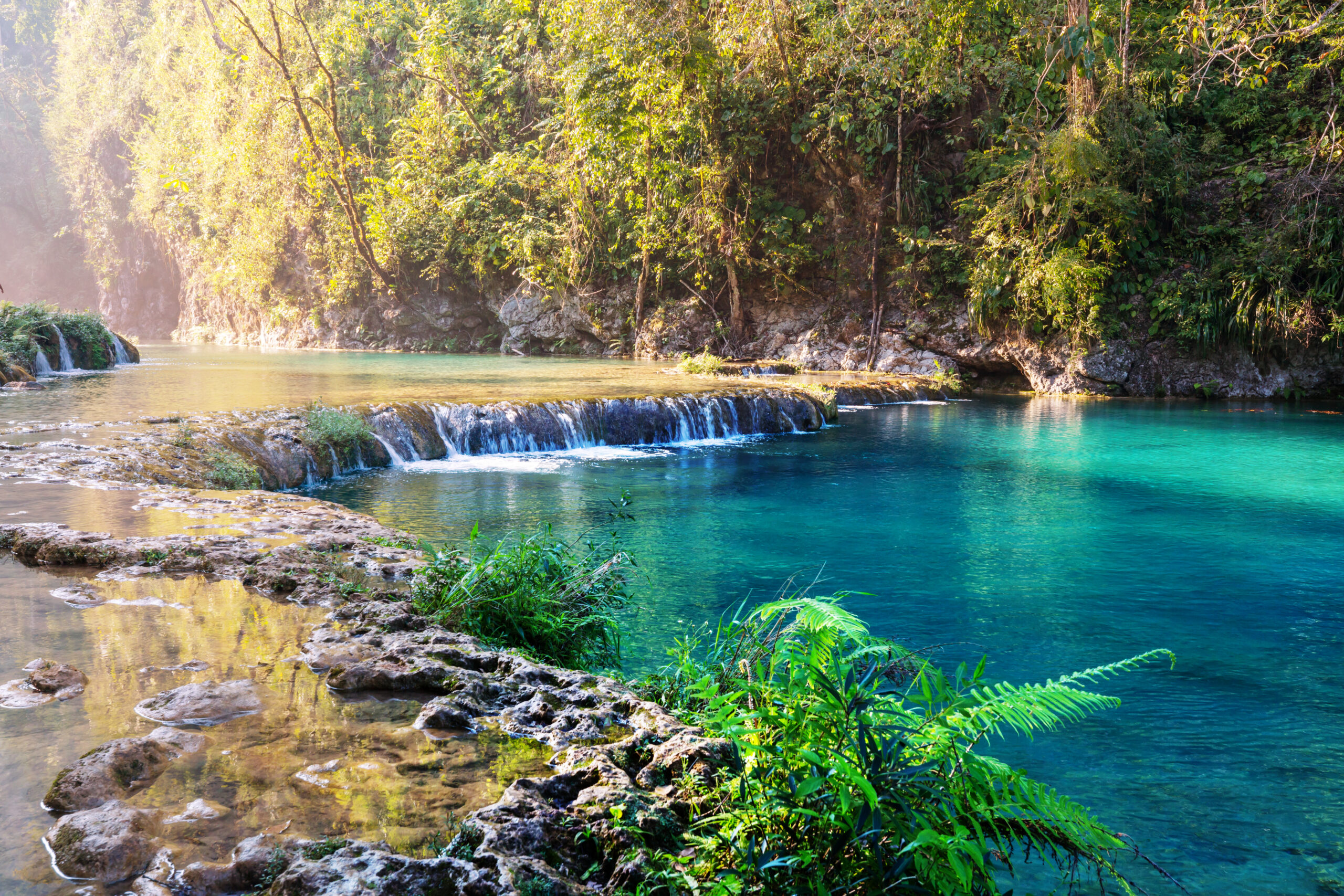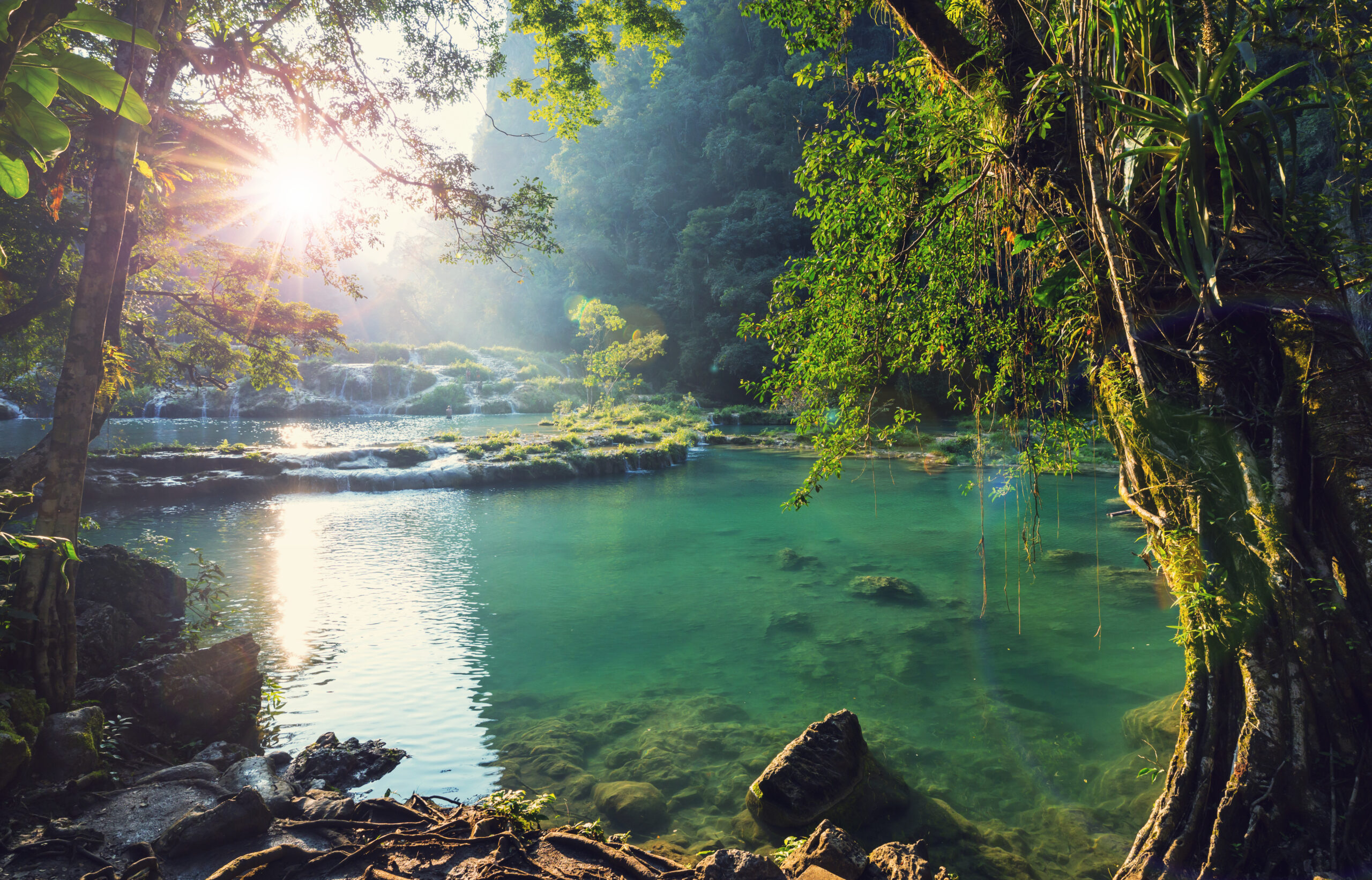You’ve heard about natural pools, but what’s the real deal? In this guide, we’ll dive into the benefits of owning one and how you can maintain it.
You’ll discover that they’re not just eco-friendly but also a healthier alternative. Ready to dip your toes in these refreshing, chemical-free waters?
Let’s explore the world of natural pools together!
Understanding the Concept of Natural Pools
You’re probably wondering what a natural pool is, aren’t you? Well, it’s not your typical chlorine-filled swimming hole. Instead, a natural pool relies on the power of Mother Nature to stay clean and fresh.

The concept revolves around pool biodiversity, which means using plants and microorganisms to filter water instead of harsh chemicals.
Natural pools have an ecological impact that is far less harmful than traditional ones due to their environmental footprint. They don’t require constant heating or the use of energy-sucking pumps, making them more sustainable in the long run. The plant life used in these pools contributes to carbon sequestration too – another win for our precious planet.
When well-maintained, these pools can create a beautiful aquatic ecosystem right in your backyard. Imagine taking a dip surrounded by lush greenery and blooming lilies! It’s not just great for you but also for local wildlife who might stop by for a drink.
Remember though, mastery over this type of pool requires understanding its unique maintenance needs. It’s crucial to maintain balance within your pool’s ecosystem – but we’ll dive into that later!
Key Advantages of Having a Natural Pool
It’s worth noting that one of the key advantages of these eco-friendly swimming areas is their ability to blend seamlessly into any landscape. Natural pools can be tailored to match the unique characteristics of your property, preserving its natural beauty while adding a refreshing oasis.
Now, you’re probably wondering about the natural pool cost. While it’s true that initial setup may be higher than chlorinated pools, over time you’ll actually save money. You won’t need to constantly buy chemicals or invest in expensive heating systems. Nature does all this work for you!
The eco-friendly aspects extend beyond just your wallet though. By not using harsh chemicals, you’re reducing water pollution and providing a safe habitat for local wildlife. Plus, the plants used in these systems act as biofilters, purifying the water naturally and reducing energy use.
In terms of maintenance, there’s less work involved compared to traditional pools. No more dealing with chemical imbalances or algae build-ups! Natural processes keep everything balanced.
Basic Steps in Building Your Own Natural Pool
Ready to get started on your own eco-friendly oasis? Here’s a rundown of the basic steps involved.
First, you’ll need to understand the pool designing essentials. It’s not just about digging a hole and filling it with water; planning is crucial.
* Design: Start by sketching out your dream natural swimming pool. Keep in mind factors like sun exposure, wind direction, and landscape contour.
* Excavation: Once you’re satisfied with your design, it’s time for groundbreaking! Dig out the shape of your pool using heavy machinery.
* Lining: Now comes an essential part – choosing eco-friendly materials for lining. They should be both durable and sustainable, like rubber or reinforced polyethylene.
* Filtration System: Install a biological filtration system rather than conventional chemical-based ones. This system will use plants to naturally clean and purify the water.
* Landscaping: Finally, beautify your surroundings with native plants that can thrive alongside your new natural pool.
Remember that building an environmentally conscious pool isn’t just a project; it’s a commitment to preserving nature around us while enjoying its beauty firsthand. So go ahead with confidence-you’re making a choice that benefits both you and Mother Earth!
Effective Strategies for Maintaining a Natural Pool
Now that you’ve built your eco-friendly oasis, let’s dive into some effective strategies for its upkeep.
A critical area to focus on is biofilm control. Biofilms are slimy layers of bacteria that adhere to surfaces in your pool, contributing to water quality issues and potentially damaging your system. Regular brushing of pool surfaces helps disrupt these films before they become a problem.
Another key aspect is algae prevention. Algae, while natural, can overtake your pool if not properly managed. Implementing a balanced nutrient management plan – which entails limiting the nitrogen and phosphorus levels in the water – is essential in preventing an algae bloom.
Invest in a good filtration system; it’s not just about capturing debris but also about fostering beneficial bacterial communities that outcompete undesirable species like algae. Keep plants healthy too! They play crucial roles in absorbing excess nutrients and providing habitat for helpful critters.
It’s important you’re vigilant with these tasks because consistency is key when it comes to maintaining your natural pool. With careful attention to biofilm control and algae prevention, you’ll ensure your eco-oasis remains pristine and enjoyable for years to come.
Challenges in Keeping a Natural Pool and Practical Solutions
Despite your best efforts, you’ll likely face some challenges in preserving the pristine condition of your ecological oasis. But don’t worry, there are practical solutions to tackle them head-on.
Maintaining the ecological balance of a natural pool can be tricky, yet with the right knowledge and tools, it’s entirely achievable.
To help you on this journey, here are five key areas to focus on:
– Water Circulation: Proper water circulation is vital for algae control. Install a good filtration system that uses natural processes to maintain clean water.
– Plant Life Balance: Diverse plant life helps keep algae at bay. Make sure you have an assortment of aquatic plants that contribute to this balance.
– Sunlight Exposure: Algae thrives in sunlight. Manage your pool’s exposure by adding shade or using UV-resistant covers.
– Nutrient Levels: Overfeeding fish or over-fertilizing plants can lead to excessive nutrients and boost algae growth. Monitor these levels carefully.
– Regular Cleaning: Regularly remove debris from your pool to prevent decay and nutrient build-up.

Frequently Asked Questions
What Is the Average Cost of Constructing a Natural Pool Compared to a Traditional One?
In pool design comparisons, you’ll find natural pools cost more upfront than traditional ones. However, they’re eco-friendly advantages offset the initial investment as you’ll experience lower maintenance costs over the pool’s lifetime.
Can Natural Pools Be Constructed in Any Type of Climate or Are There Specific Weather Conditions Necessary for Their Sustainability?
You can construct natural pools in various climates, but climate adaptation and pool landscaping are vital. They’ll need specific design and plants for colder regions, while warmer climates require appropriate shading and water features.
Is There a Possibility of Attracting Unwanted Wildlife to Your Backyard With a Natural Pool?
Yes, there’s a risk of attracting wildlife with a natural pool. Using wildlife prevention techniques like installing pool fencing and managing the surrounding vegetation can help reduce this likelihood significantly.
Are There Any Health Risks Associated With Swimming in a Natural Pool, Such as Bacteria or Parasites?
While there’s a risk of bacteria in any body of water, pool sanitation methods effectively combat this in natural pools. Don’t buy into natural pool myths; they’re as safe as chlorinated ones when maintained properly.
Will a Natural Pool Increase the Value of My Property?
Yes, a natural pool can boost your property’s value. It enhances property aesthetics with its natural appeal and eco-friendly nature. This attracts potential buyers who value sustainability, increasing your home’s marketability and worth.
